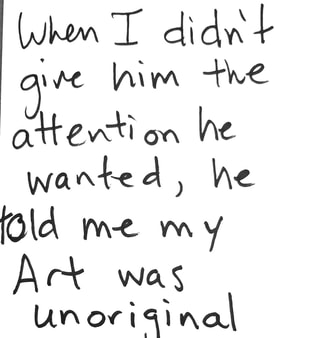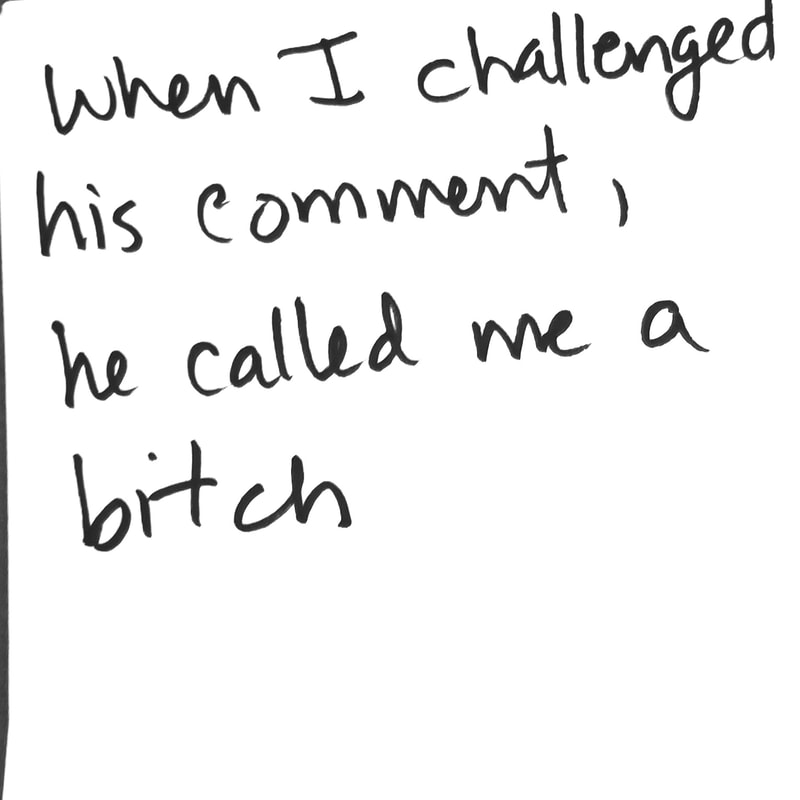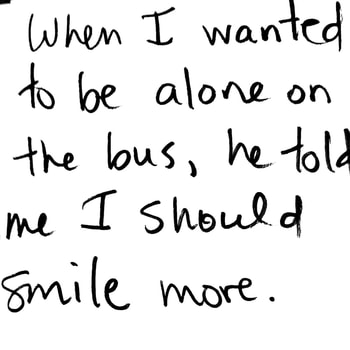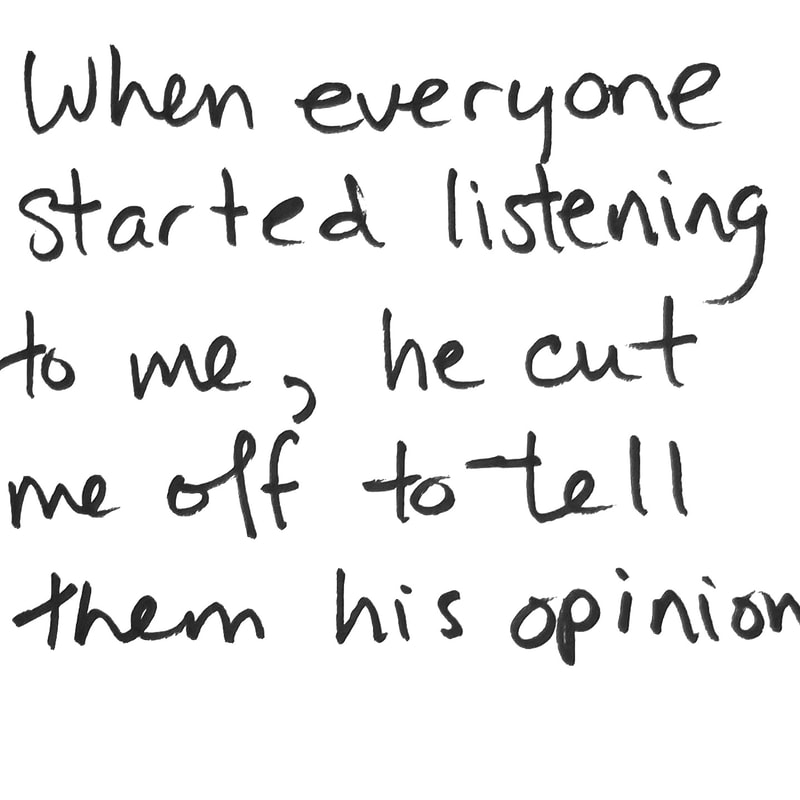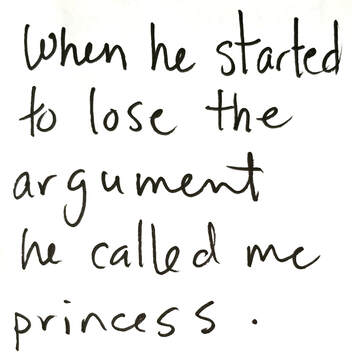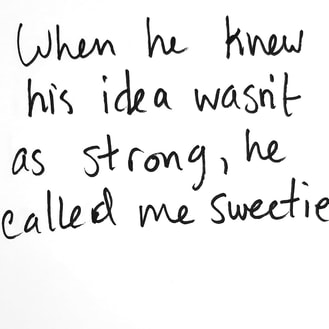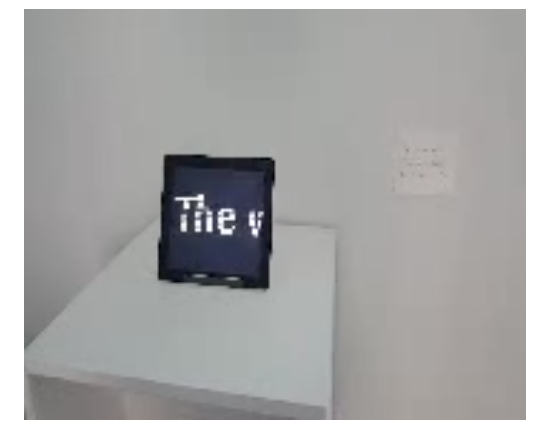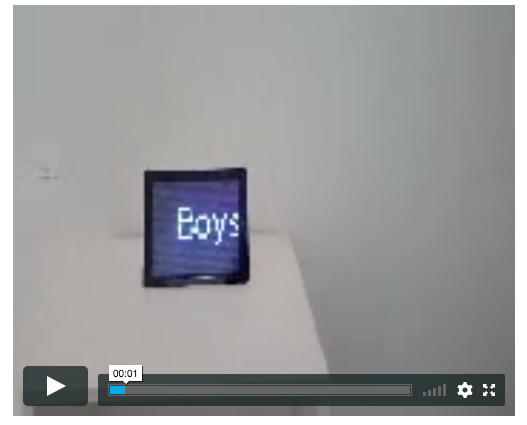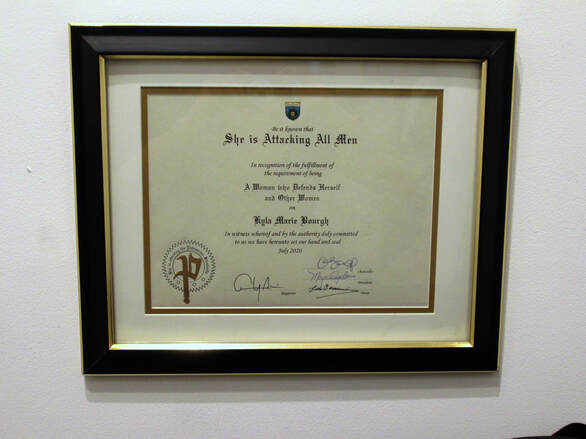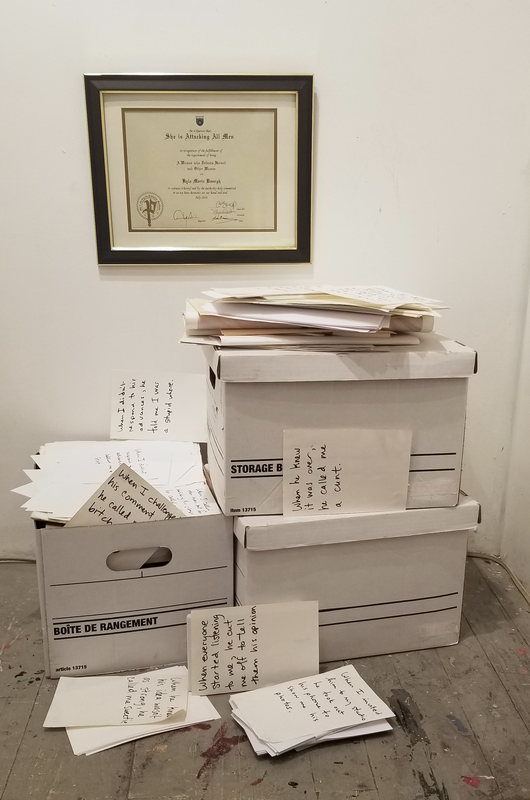When...Then Series
|
In my series “When…then”, I am exposing experiences that women have personally endured and confronted when dealing with how language is used within power dynamics with men. This is done by producing larger-scale posters that have text printed on them. The text appears to be handwritten and is amplified materially. I am providing an example of the constant brutish behaviour that particular men use in situations where they are not given power and how they then attempt to regain power by subjugation of the woman through the direct act of name-calling.
|
Two-Sentence Stories- A nod to Jenny Holzer
The greatest importance of the Two-Sentence Story series is that it initiated my focus on text-based artwork. It also presented the two majorly reoccurring themes of race and gender in my work. These are two thematic perspectives that have shaped my life and have deeply influenced my trajectory and direction.
She's Attacking All Men (Getting Credit for it)
|
In response to this comment which is equally dismissive and absurd, I created a dialogue piece within this series by commissioning a friend who is a calligrapher to create a diploma awarding me the privilege of getting credit for “Attacking All Men.”. The risk of creating such a response was incredibly satisfying and with this, I was able to include the element of humour I had wanted to develop in my graduate work.
The comment, “She is attacking all men,” is the only response I received to the series from a man and it was expressed covertly to another person before it made its way to me. In this way, the responses are hidden which eludes alludes to Foucault’s view on how power operates. Consider that this series is not exaggerated but and instead it is commonplace and it points towards the injustice of inequality. I have lived with this aggression towards me, yet I refuse to allow for it to be excused or dismissed. I name it, and in naming it, people are confronted by their own use of language as tools to keep these forms of discrimination as repeatedly reproduced. |
After viewing the "When...Then..."series on instagram, a someone I know said their partner told them that I was attacking all me. (“She is attacking all men”). There seems to be an easy dismissal in the comment when something that like my artwork is ‘attacking all men’, as if it can be so easily concluded and thrown out as mere feminist aggression. I am attacking the power dynamic that is held by men when they feel they are being like when they are challenged, or when the attention is not on them, or when their behaviour is being exposed.
|
Proudly powered by Weebly
